Wall Street: Money Never Sleeps
 for brief strong language and thematic elements.
for brief strong language and thematic elements.
Reviewed by: Scott Brennan
CONTRIBUTOR
| Moral Rating: | Better than Average |
| Moviemaking Quality: |
|
| Primary Audience: | Adults Teens |
| Genre: | Crime Thriller Drama Sequel |
| Length: | 2 hr. 13 min. |
| Year of Release: | 2010 |
| USA Release: |
September 24, 2010 (wide—3,400+ theaters) DVD: December 21, 2010 |
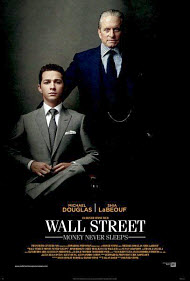


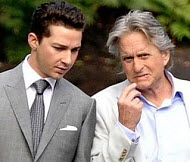



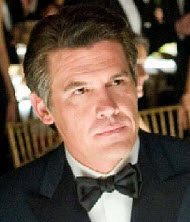


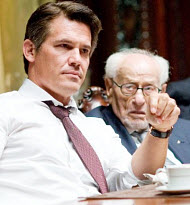

SUICIDE—What does the Bible say? Answer
If a Christian commits suicide, will they go to Heaven? Answer
Death in the Bible
Money in the Bible
FINANCES—How can I spend my money more wisely? Answer
INVESTING—Does the Bible share any wisdom about investing? Answer
CREDIT CARDS—Should a Christian have or use credit cards? Answer
| Featuring |
|---|
| Shia LaBeouf (Jacob Moore), Michael Douglas (Gordon Gekko), Charlie Sheen (Bud Fox), Carey Mulligan (Winnie Gekko), Josh Brolin (Bretton James), Eli Wallach (Jules Steinhardt), Susan Sarandon (Sylvia Moore), Oliver Stone (Art buyer), Natalie Morales, Frank Langella (Lewis Zabel), See all » |
| Director |
|
Oliver Stone |
| Producer |
| Edward R. Pressman Film, Alessandro Camon, Celia D. Costas, Eric Kopeloff, Edward R. Pressman, Oliver Stone, Alex Young |
| Distributor |
“Greed… is good.” This is probably the most widely remembered quote from the first “Wall Street” back in 1987, spoken by the main character, Gordon Gekko (Michael Douglas), a Wall Street tycoon who was sentenced for 8 years due to his insider trading and market manipulations at the end of the film. Michael’s portrayal of Gordon Gekko garnered his first Best Actor Prize at the Academy Awards® that year, cementing his status as a bona fide movie star, separating him forever from his father’s (Kirk Douglas) coattails, in the eyes of any critics skeptical of his individual talent.
The film became iconic in the business world, because of its accuracy and believability, so much so, that since its release, there has probably not been a day that has gone by that a quote from the movie hasn’t been used somewhere on Wall Street. “What’s worth doing is worth doing for money,” “Lunch is for wimps,” “If you need a friend, get a dog,” and “When you’ve had money and lost it, it can be much worse than never having had it at all!” are just a few examples from that long list of quotes.
With a character archetype like Gordon Gekko, it’s not surprising this sequel has gathered such momentum in recent weeks. Like the memorable characters that Marlon Brando and Al Pacino portrayed in “The Godfather,” where audiences lined up to see the sequels because of their performances, Gordon Gekko (Michael Douglas) fans will probably do the same—despite the 23 year hiatus between the two films. Part of the success of the first film was the tight script written by Stanley Weiser and director Oliver Stone. Oliver’s own father, Lou Stone, was actually an old-school Wall Street stock broker, an honest man with the voice of reason, whose real life persona was portrayed by Hal Holbrook’s character in the first film, a fact which undoubtedly gave Oliver the obvious insight exhibited in the script.
The sequel picks up (new writers—after Weiser backed out due to creative differences), with Gordon Gekko exiting a federal prison in 2001 (Oliver Stone directing again—after backing out—then stepping back in), and quickly fast forwards 7 years to the U.S. financial meltdown of 2008. In no time at all, Gordon is dishing out advice as a “guide on the side” instead of the “sage on the stage” with a book deal and new quotes like “Greed is no longer good, now it’s legal.”
The crux of the story is the attempt at the reconciliation between Gordon and his now adult daughter and the relationships between his daughter and her fiancé, Jake Moore (well played by Shia LaBeouf). There are also some intriguing subplots having to do with revenge which pits Moore and Gekko up against one of Gordon’s early day rivals, Bretton James (Josh Brolin), but each one for a different reason. Noteworthy supporting performances are present, by Susan Sarandon and Frank Langella, as well as a cameo by Oliver Stone and Charlie Sheen (Bud Fox from “Wall Street” 1). All these relationship issues are in the forefront of the new storyline with the undertow of “the greed principle” running just below the surface.
If you were not a fan of the first film, or never had a chance to see it, this sequel would still be captivating—if for no other reason than gaining some insight on what really happened behind the scenes at the onset of the economic debacle that nearly collapsed the U.S. and world markets just 2 years ago. Therefore, the film stands on its own, without the need to see the first, due to its informative and well-crafted script, along with a strong cast.
For the record, I watched the two films back to back this weekend, to check for continuity in the story line. The plot flowed fairly well across both scripts, but what really stood out was how much our world has changed in just over 2O years. From shoe-size cell phones, to iPhones, from MS-DOS, to Windows 7—the change is drastic and eye-opening, in a surprising way. In addition, I noticed the extreme profanity of the first film, which was thankfully absent from the sequel, by comparison, which leads me to my next comments.
Content for Concern
Shia LaBeouf, star of the “Transformers” films, plays the protagonist (Jake Moore) in the film, a young, upwardly mobile Wall Street wiz-kid who just happens to be in a “live-in” relationship with Winnie Gekko (Carey Mulligan), one that is so idealistic and positive that the young Christian viewer may easily forget that it’s outside the scope of acceptability according to the Word. There are kissing scenes and a couple of scenes where they are in bed, but no nudity. There are NYC club scenes with extravagance, self-indulgence and drinking promoted as normal among the Wall Street elite.
As to language, as I mentioned above, there is far less profanity in the sequel compared to the first—which went beyond “R” in my opinion. That’s not to say that this film didn’t earn its PG-13 rating. My notebook has 5 checks next to the words “GD” and two uses of Christ or Jesus Christ in vain. There is some other spicy language (2 f-words, 2 s-words, 6 *ss, 8 hells, 3 d*mn, 2 cr*p), although much of it was in the conversational backdrop and not gratuitous.
The remaining objectionable issues all deal with both the subtle and overt references to “lying and deception” as a way of life, not only for Wall Street types, but for people in general, which has both pros and cons in terms of telling this story, but ultimately throws a garment of acceptability over the telling of lies—be they little white ones, or large million dollar ones.
Spiritual Significance
On the other hand, the positive messages that can be gained from the film are many. The writers didn’t hide the fact that “lying and deceiving” have their own built in consequences, none of them good, whether they be in financial deals or in relationships. That is a check in the “pro” column. Although Jake and Winnie were living together in the film, there is a constant promotion of their promise of marriage in the script and a promotion of the values of honesty in their relationship. That is another positive and a second check in the “pro” column.
In addition, there is a declaration of the importance of family and the characterization of the vital need for it, particularly in a child’s early years, which is pronounced in the film as Winnie reflects back on her childhood with Gordon in her early years. Finally, there is an ultrasound that is played at two different times on the big screen, which, by its mere presence, underscored the power of life in the womb, in an almost subliminal fashion, due to the way it is woven into the script.
However, on the “con” side, for the grittier movie viewer, and perhaps the non-Christian viewer, all these “pros” will likely be seen as negatives, altruistic, and a sell-out on the part of Stone, especially with the ending. [As to the ending—this reviewer would agree, but I suspend my disbelief for the sake of the whole.]
One could also argue that the truths proclaimed in Galatians 6:7 (…Whatsoever a man sows, which shall he also reap…) and 1 Tim 6:10 (…For the love of money is the root of all evil…) are foundational to the entire script, along with all of Proverbs: Chapter 6. Off hand, I can’t think of any film that would more accurately portray the reality of these scriptures than in “Wall Street: Money Never Sleeps.”
In one of his rants of advice to Jake, Gekko warns that money is a “she” and lies awake at night next to you like a jealous lover, always bidding for your affections. According to 1 Peter 5:8, someone else who never sleeps is the enemy of our souls, always lurking and walking around like a roaring lion, seeking whom “he” may devour. Clearly the power of and influence of money and “the love of it” is at war with the relationships that are center stage in this film. As is stated explicitly in scripture: “The thief does not come except to steal and to kill and destroy…” (John 10:10).
In summary, this film was surprisingly positive, for its genre. Frankly, I fully expected it to fail the moral rating of “a pass.” Instead I can honestly say there is enough to be gained from the film by mature teens or adults who want to see family values promoted over the self-centered greedy ways of Wall Street, and, also, for those who are interested in taking a peak behind the curtain into the backroom deals of high finance. Truly, there is an adult conversation to be had, especially before the upcoming election, about the costs and benefits of government oversight in a free market economy. How much is too much? How little is too little?
As to the rest of the details, the photography work is brilliant—complete with all the up-to-date bells and whistles needed to characterize the world of Wall Street in the 21st century including time-lapsed photography, computer images and shots from angles that you have never seen before in NYC. It has the mark of Oliver Stone’s perfectionism, and delivers with it a stunning musical score and a soundtrack that stays with you, right down to David Byrne’s unique blend of lyric and sound joining the two films seamlessly across the decades.
I pray for Michael’s speedy recovery and hope to continue to see him illuminate the screen, as he as done so many times before.
Violence: Moderate / Profanity: Heavy / Sex/Nudity: Moderate
See list of Relevant Issues—questions-and-answers.


CONTRIBUTOR’s review. I’d like to add a few comments. I found the script to be nowhere near as tight as the first. Unless a person is versed in financial-speak, the dialogue may be hard to follow at times. Unless a person has a basic understanding of the 2008 financial meltdown and the players involved, the story may be hard to follow at times.
But I guess what bothered me most was this; several times I felt drawn into the story… but then out of nowhere something would be said, or done, or there would be a photo in the background, or a snide comment made that immediately snapped me back into the theater and reminded me that I was just a patron in a movie.
A movie by Mr. Oliver Stone. And Mr. Oliver Stone’s message, politics, and beliefs were bleeding through and, for me, ruining what could have been a decent sequel.
Moral rating: Average / Moviemaking quality: 4
There were no heroes in this movie and each person who was presented at one time to be a hero later would disappoint as their heart issues became more clear. If anything it revealed the total depravity of all men, but failed to show the redemptive/corrective work of God.
At the beginning and end, it shows the worldview that will be the foundation of the movie—Darwinism. Interestingly, my son said he had heard this movie was not a good one for Christians, but I insisted based on this movie review and moral rating. Suffice it to say my son was right. If nothing else, we spent a good hour after the movie discussing the worldviews presented, the fallacies of the story portrayed, and the hopelessness that life presents without Christ.
Moral rating: Offensive / Moviemaking quality: 4½
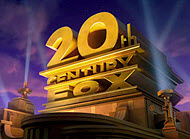
My Ratings: Moral rating: Average / Moviemaking quality: 4½